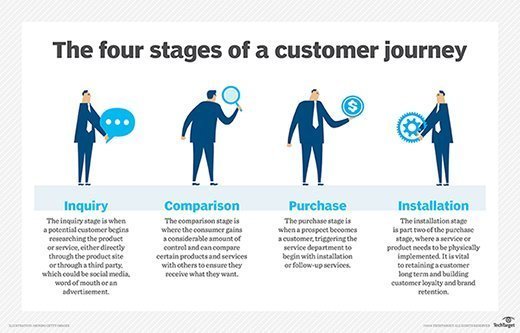solution selling
What is solution selling?
Solution selling refers to the philosophy or practice of uncovering a customer's pain points and then providing products and services that address the underlying business problem.
Solution selling vs. 'box pushing'
The solution-selling approach stands in contrast to sales practices that emphasize technology products with little regard for a customer's individual context and business concerns. In the IT channel, solution selling is often contrasted with "box pushing," a pejorative term that describes a sales process focused on products and their performance characteristics -- "speeds and feeds."
Solution selling, instead, stresses the importance of analyzing and understanding a customer's requirements first and then recommending products and services that provide the solution.
Solution selling examples
The key components bundled with a solution sale generally consist of hardware, software, networking and storage technologies -- along with associated services. Those services can include upfront business and technical advisory services, technology implementation services, and post-implementation managed services and hosting. The role of advisory services in helping customers identify the business problem has created strong parallels between solution selling and consultative sales.
In a typical scenario, a channel partner would approach a customer's executives to discuss their top business and operational challenges. The partner discovers customer pain points -- for instance, related to storage technology. The customer may be struggling specifically with I/O performance, growth in overall data stored or storage for performance of specific business-critical applications. Now, armed with customer insight, the partner then designs an IT solution that addresses the customer's unique challenges and proposes the solution.
Background
The concept of solution selling began to take root in the 1980s. During that era, value-added resellers (VARs) started to take on the characteristics of solution selling, providing applications bundled with a particular hardware platform as turnkey solutions. Over time, solution selling became more sophisticated: VARs began offering professional services to complement their product offerings, dubbing themselves solution providers in the process.
Similarly, systems integrators took up the solution-selling banner, providing consulting, software customization and implementation services, with the aim of delivering comprehensive solutions to complex business problems.

This chart shows the typical customer journey, which is marked today by customers performing their own research.
Criticism
In recent years, solution selling has come in for some criticism. A 2012 Harvard Business Review article, for example, declared "The End of Solution Sales," noting that companies, equipped with sophisticated procurement teams, "can readily define solutions for themselves."
In general, the availability of technical and product information on the internet has weakened salespeople's control over the sales process. That is, the customer no longer heavily depends on the seller for information. Nearly three-quarters of business buyers surveyed by Forrester Research said they conduct more than half of their research online before conducting an offline purchase. This situation raises questions for traditional solution selling -- and its assumptions regarding a buyer's level of knowledge and expertise.






